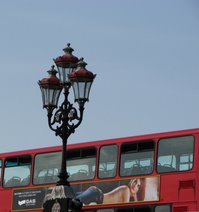When I read stories like this (
http://www.timesonline.co.uk/tol/news/politics/article5375668.ece), I think I have had my eye off the ball for too long. Liberty seems to be being eroded so fast and in so many areas that we are in danger of only realising when it is far too late.
Not only do we live in an over-regulated, over-taxed country but it seems that one of the last areas of freedom, your own home, is no longer free. The old cliche of an Englishman's home is his castle is sadly wrong.
The threat is that private bailiffs will be able to break into a house and "use reasonable force" to recover private debts. Up until now, as far as I knew, such action could only be taken with police support and court orders.
Several risks come immediately to mind, even for those who do not build up debts they cannot pay:
1) The bailiffs may simply get the wrong address. Who pays for a new door when the mistake is realised ? (not to mention the distress of it happening).
2) Identity fraud, previous occupants and other members of the same family all offer routes by which an "innocent" could be targeted at the "correct address" for the debts of others.
3) What is "reasonable force" ? English case law has taken centuries to determine this. I doubt a hired thug would be able to grasp the precise boundaries too quickly.
4) What happens if the alleged debtor fights back ? Deos the reasonable force escalate ?
5) What happens if the alleged debtor keels over from a heart attack or other cause ? Is using reasonable force to recover a debt a defence to manslaughter or murder ?
The Government has clearly not thought this through (not for the first time) but what is more concerning is that this is not some obscure issue. It effects everyone who lives in Britain.
Having had dealings with such delightful people as wheel clampers in my time, I dread to think that similar could be given the power to break into private houses and use force to recover parking fines, catalogue debts and similar.
This truly seems dreadful and the comments to the Times article suggest I am not alone in this.
 By the end prices were 90 % off everything. However there was little to buy.
By the end prices were 90 % off everything. However there was little to buy. Battered shelves
Battered shelves Empty shelves
Empty shelves














